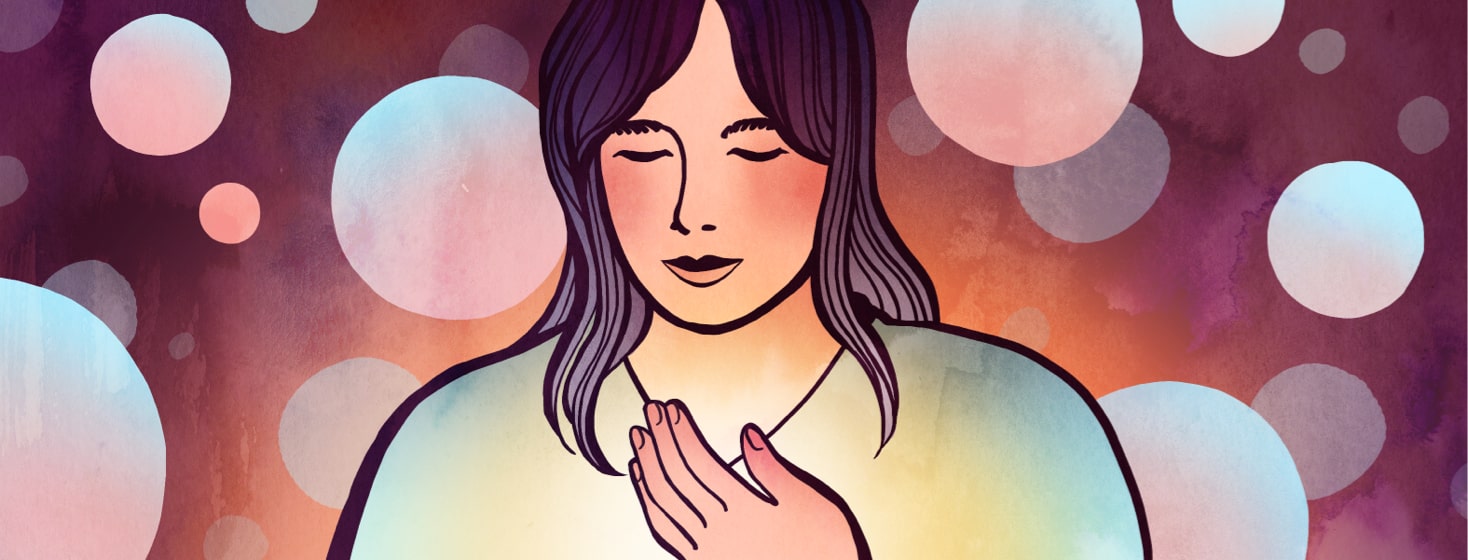A Parent's Journey to Acceptance
As the daughter of someone who experienced untreated psychosis and addiction during my childhood, my first experiences of serious mental illness were chaotic and often frightening. I found it difficult to forgive my mother for her neglect and occasionally abusive behavior, even though I understood intellectually that she loved me and did the best that she could.
Facing a child's schizophrenia diagnosis
When it became apparent that my daughter was experiencing the onset of the same illness, my first reaction was panic – and denial. I couldn't bear to think that Sally would suffer the way my mother had. But I knew I needed to confront my fears if I was to support Sally well, so I shifted to learning as much as I could about schizophrenia.
It took a while, but in time I was able to accept Sally's schizoaffective disorder as a complex condition which can nonetheless be managed – by her, not me. Dealing with it openly also helped me to let go of the shame I carried about what had once been a painful family secret and move on to acceptance – and solutions.
Moving toward to acceptance as parents
I believe that all of us can experience a positive and healing transition in our thinking, but it does take time and intention as humans aren't really built for the task. We like consistency and resist new information, and experience discomfort when there is conflict between our knowledge, opinions, or beliefs and evidence to the contrary, a phenomenon called cognitive dissonance.
Instead, we gravitate toward information that confirms our existing beliefs and discounts evidence to the contrary. We may even avoid people and institutions that threaten our beliefs, while investing in theories that make little sense to those around us or don't hold up to scrutiny.
Nothing is more precious than our children
This is especially true when something precious, like the wellbeing of a loved one, is at stake. When we have an emotional investment in the status quo, changing our beliefs can hurt. Parents often experience grief over the loss of dreams they held for their children when illness forces a change of direction, like withdrawing from college or stepping back from a career.
No wonder so many of us remain in denial, desperately searching for some other explanation for changes in our children's behavior or seeking out alternative treatments based on little evidence of success.
Parents want answers and clarity
It certainly doesn’t help that we still know very little about this complex and many-faceted condition. It’s natural to feel frustrated when science can’t provide us with a definitive profile, or even a conclusive diagnosis. We want answers, not ambiguity and nuance! I myself have occasionally felt despair when I realize how unlikely we are to ‘solve’ schizophrenia in my lifetime.
I once judged other parents for taking their children from one "specialist" to the next in search of a less frightening diagnosis, or seized on dubious "cures" peddled by people with no proof of success.
I have a lot more compassion now that I understand that I had my own equally nonsensical coping mechanisms – like trying to tell my family how they should react to the news of Sally's illness or blaming clinicians for problems that were pretty obviously the result of funding deficits.
Reacting out of fear
I see now that I was reacting out of fear. But all parents eventually encounter the shocking paradox that the task that once required everything of us now suddenly demands us to let go, that when our children become adults we must step aside as they continue on. It doesn’t mean that we stop loving them. We just learn to love them even harder in the moment, knowing how very little is in our control.
Schizophrenia has cost me years of worry and tears and grief, but it has also paid me back in compassion and understanding, in deeper relationships, in letting go of the things I can't change, in acceptance.
Loving our family members with schizophrenia
I now remember my mother as a creative, loving, lively person whose great potential and spirit were crushed long before her death – and who, if she'd received the support and care she deserved, might have lived as satisfying and rich a life as my daughter does today. That is undeniably a tragedy, but it needn't shape the future of anyone who is affected by schizophrenia today.
Acceptance doesn't happen overnight, and we have the right to experience the entire range of human emotions along the way. But for every tear you shed, I wish you a moment in the future when you can pause and love yourself and your loved one for exactly who you are, as you are. Because schizophrenia is only one chapter in your story.
